Jul 20, 2016 Film & TV
Happy Hour, The Daughter, Under The Sun and more.
When you call your film Happy Hour and it’s five and a quarter hours long, you are more or less begging for cheap shots. But as it turns out, I was happy the other four and a quarter hours as well. It’s day six of the festival as I write this. I’ve seen 18 films so far. No duds. Several masterpieces. Happy Hour is the head and shoulders stand-out.
The obvious question: what can a five-hour film do that couldn’t be done as well or better in a long-form TV drama? Let scenes run, is the short answer. It doesn’t matter how good a TV show is, if it’s working within a one-hour episodic structure, it has rhythms and formal limits and you develop a feel for them. I didn’t realise how adapted I am to this — to expecting a character-driven story on this sort of scale to give me structural handles — until the first moment when one of writer-director Hamaguchi Ryusuke’s scenes just kept on going, playing on and playing out, getting more and more interesting, and I realised that in principle it might last for two hours, or three, or for the entire rest of the film. There was no way to know.
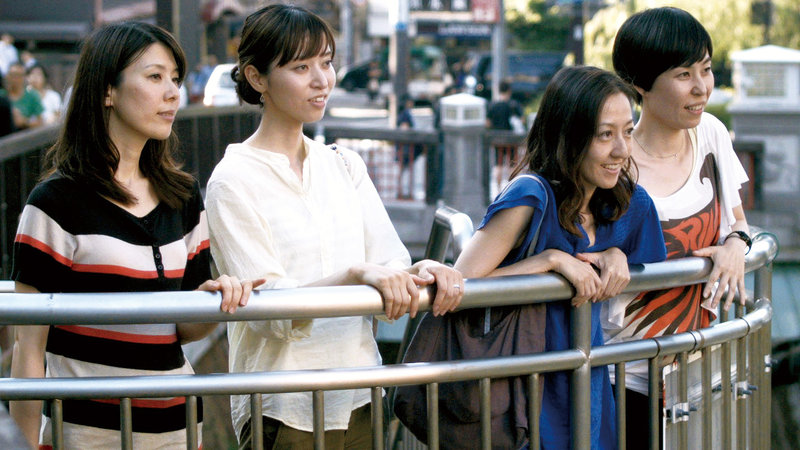
Four women in their thirties, close friends. They meet every so often, they talk, they go on trips together. Does the film have a plot as such, or is it a pure character study? You don’t know, and it doesn’t matter; or rather it matters very much, but the characters are so interesting and the story is so warmly immersive that I quickly found I was going to be happy — that word again — either way. The cinematography is for the most part elegantly unobtrusive, in classic slice-of-life realist style, which means that the rare visually stylised moments are almost shocking: which tells you a lot about how judiciously Hamaguchi uses the opportunities his running time affords him.
I saw two other films the same day as Happy Hour. They could hardly have been more different, from it, and from each other; and at time of writing they’re the other two films at the top of my list. (I am always making and revising festival lists.) You get days like this every so often. They’re hard to describe. Rich, unfathomable experience: quick, stretch your legs: grand tragedy, gloriously realised: quick, run up the hill: a work of genre cult genius: and now it’s midnight.
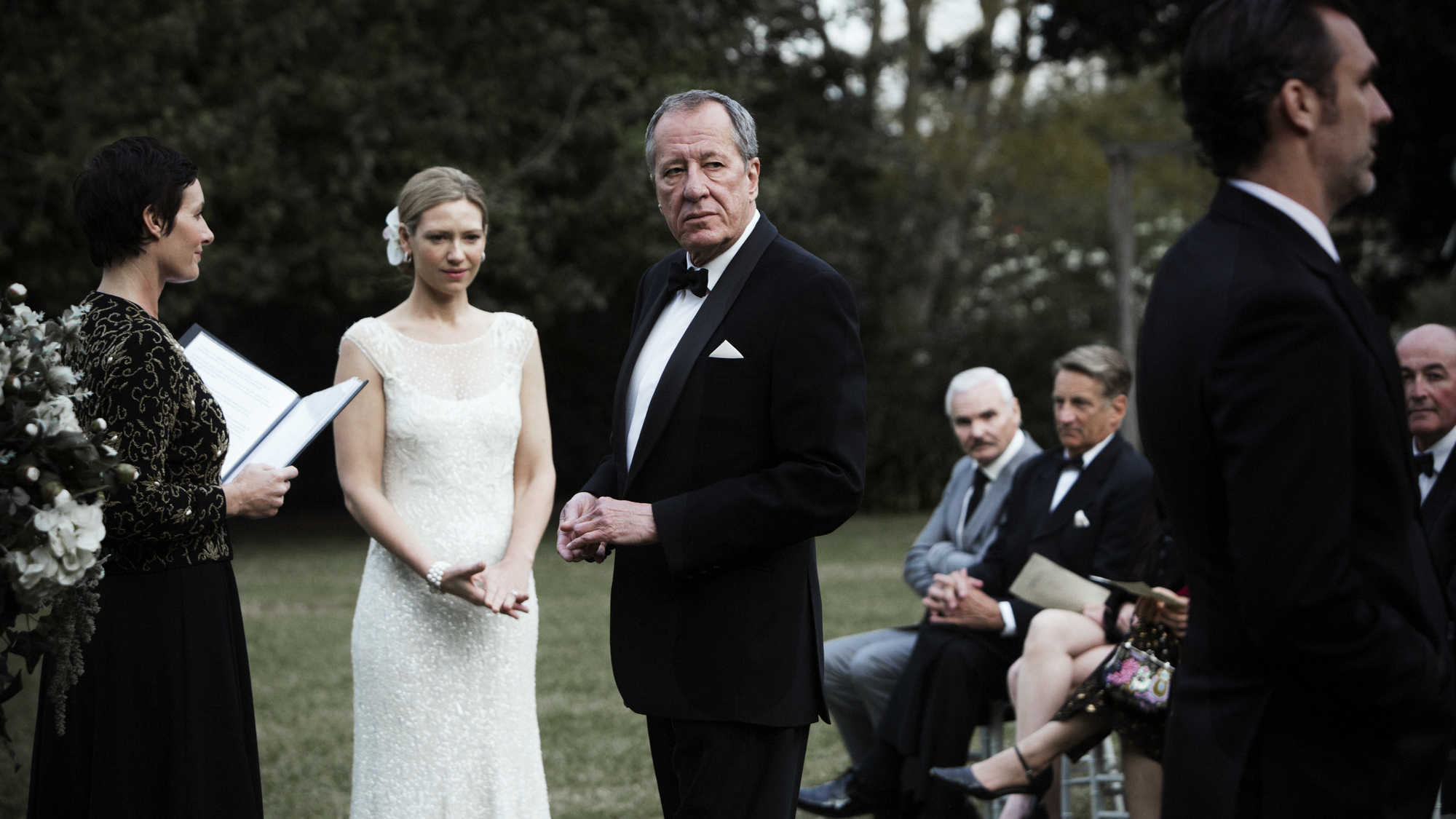
The grand tragedy: The Daughter, an Australian contemporary recasting of Ibsen’s The Wild Duck, and if you didn’t know that, and had never seen the play, you’d still feel the shape and weight of classical drama in your bones from the first shots of the first scene.
Every last little thing about this film is top drawer.
Every last little thing about this film is top drawer, from the casting — Geoffrey Rush and Sam Neill at one end of the generational spectrum, brilliant teen Odessa Young at the other, and Miranda Otto, Paul Schneider and Ewen Leslie in between — to the sharp, focused writing, to the glorious camerawork. The balance between the punishing economy of Ibsen’s narrative structure and the humane warmth of the characters trapped within it is very well judged, and it demands a lot from the cast — especially Odessa Young, as the innocent with the most to lose. She’s extraordinary. (I’ve just noticed she plays the title role in Looking For Grace, also at this festival, and I’m wondering how I can possibly rearrange my schedule so I can get to it. By sleeping less? Probably I’ve taken that strategy to its limit already).
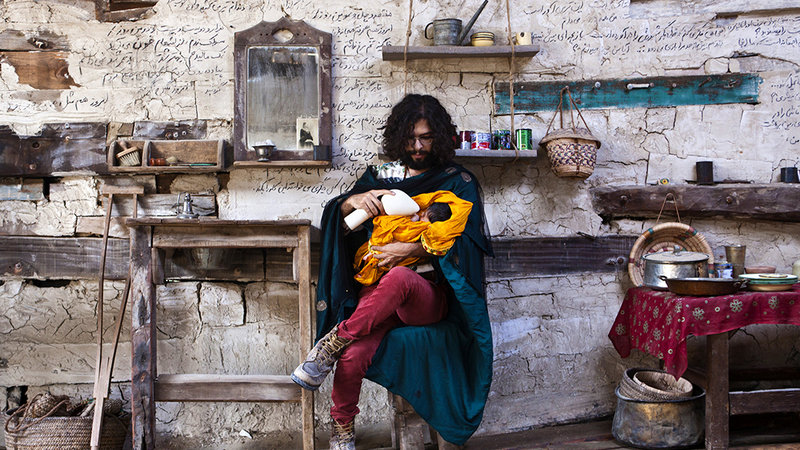
The work of genre cult genius: A Dragon Arrives! — which does, as the programme note promises, earn its exclamation mark. My standing rule for some years now has been, “If the film is from Iran, just see it”. Their national cinema keeps beating the odds of one of the world’s stricter censorship regimes: every time you turn around, something vibrant and interesting has made it to the screen. This time it’s a structurally intricate shaggy dog story built around a mystery, and there’s very little about it I’d care to risk telling you in advance. But the relevant genre categories are political thriller, detective noir, X-Files, and post-modern self-referential documentary.
Of all the films I’ve seen so far at this festival, this one has the most images I’d hang on my wall if I could.
Of all the films I’ve seen so far at this festival, this one has the most images I’d hang on my wall if I could, and the music and general sound design are glorious throughout. (As they should be, considering part of the story is about a search for a missing sound engineer). Be advised that keeping track of this one will both require and repay concentration.
Hell and damnation, I have five other films I want to tell you about and I need to leave for a screening in less than an hour. We go now to extreme brevity format.
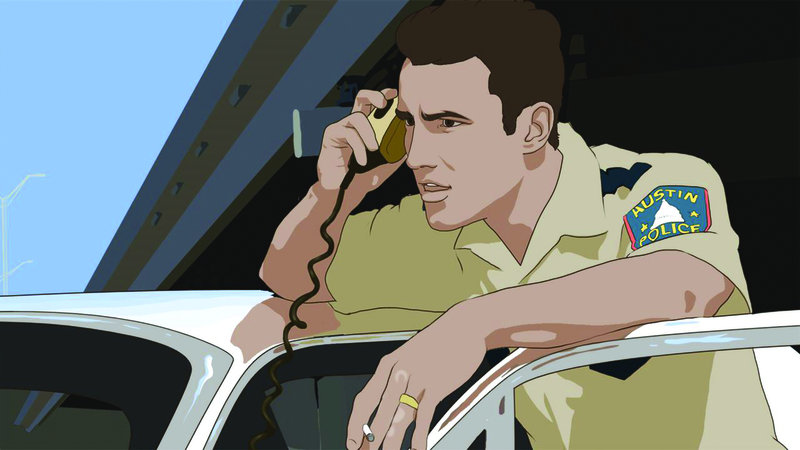
Tower. A tough sell, but a very strong film: uses a range of different animation styles to recreate a 1966 campus mass shooting event in America, as experienced by — and this is crucial — the victims and the people who risked their lives to help them. The shooter is a shadowy absence at the center of the story, though one victim’s comments on him are a more useful window into the question of how a person could do such a thing than anything else I’ve read this year. (And, sadly, that’s a lot). The use of animation turns out to be inspired, allowing the film to feel profoundly real, while at the same time implicitly insisting on its own status as an interpretive artifact. Generous and compassionate. I cried a lot.
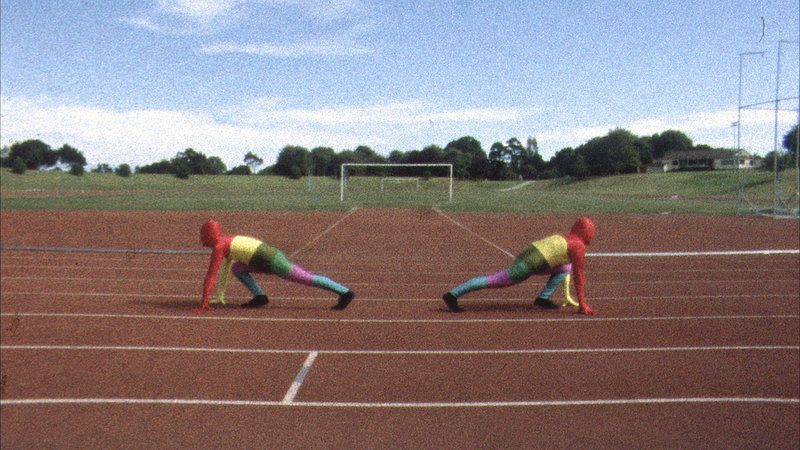
Apple Pie. Experimental magnum opus from Kiwi artist Sam Hamilton, consisting of ten short segments reflecting on planets of the solar system. You make take “reflecting on” as shorthand for “doing weird visual shit in some tangential way related to”. Unlike anything else I’ve seen at this or any other festival, and worth going to for more reasons than that. Took me a little while to get into — the opening sections were not my favourite ones — but the later sections, especially those on Earth, Jupiter, and Saturn, were astonishing and wondrous. When reviewers call films “meditations” — “an intriguing meditation on existential angst” — we usually mean, “It has ideas! And I want to sound intelligent!” The experience of watching this film was closer to being an actual meditation than any I can remember.
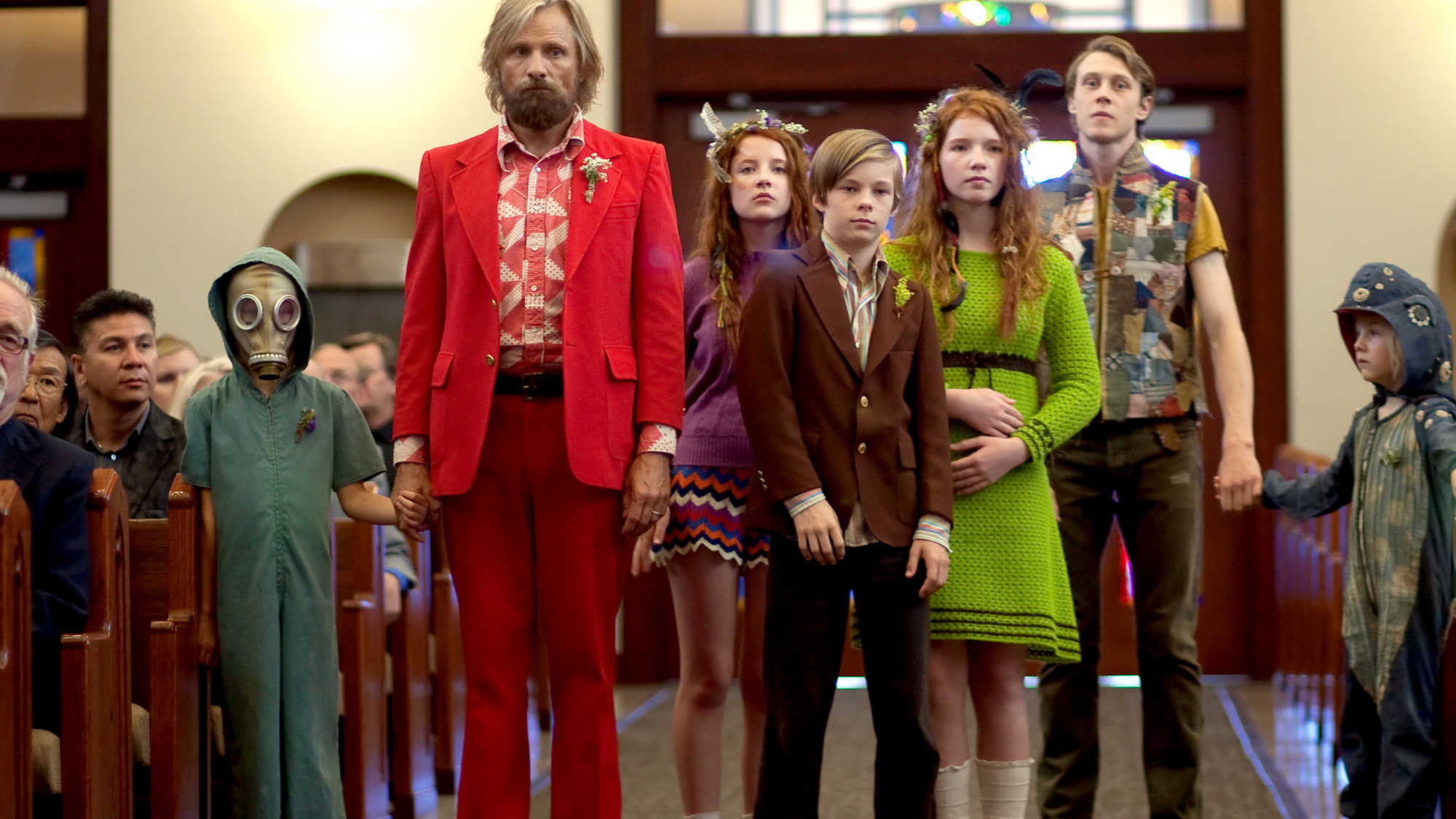
Captain Fantastic. Is, yes, fantastic. I should probably hate this; it’s a Little Miss Sunshine type road movie built around a home schooling single father’s need to accept that his children can’t be protected from the world forever. My distance from this subject, as a former home schooling single father, is less than most viewers’ would be; and the film goes for a lot of cheap laughs and tears, by pushing both the costs and the benefits of home education way, way out into the realms of fantasy. But the writing is clever, the characters are sweetly drawn, and the father is played, oh my beating heart, by Viggo Mortensen, who has never been better.
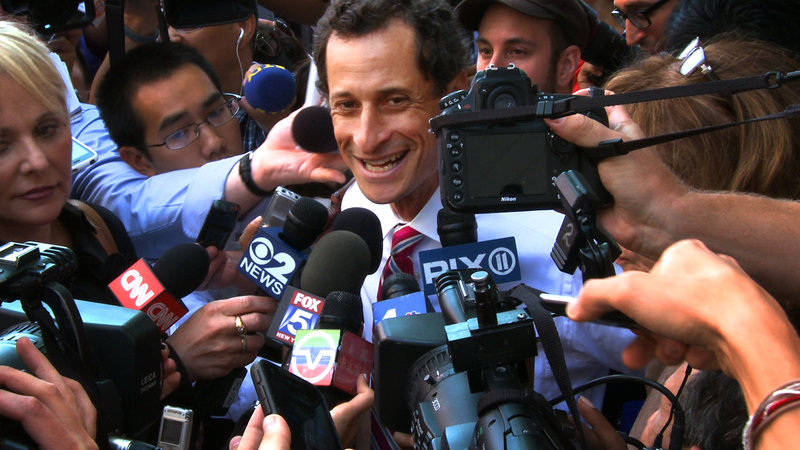
Weiner. Do you really need to spend 90 minutes learning all about an American politician’s sex scandal? You really do, yes: or rather, Weiner, a fly-on-the-wall study of the former congressman and New York mayoral candidate of the same unfortunate name, is so much more than just a sex scandal film. Brilliantly edited to convey the pace and drama of a big mayoral campaign, it benefits from gasp-inducingly near-total access, and from having a subject whose strengths and weaknesses approach the Shakespearean. Features, inevitably, a cameo from Donald Trump. But see it anyway.
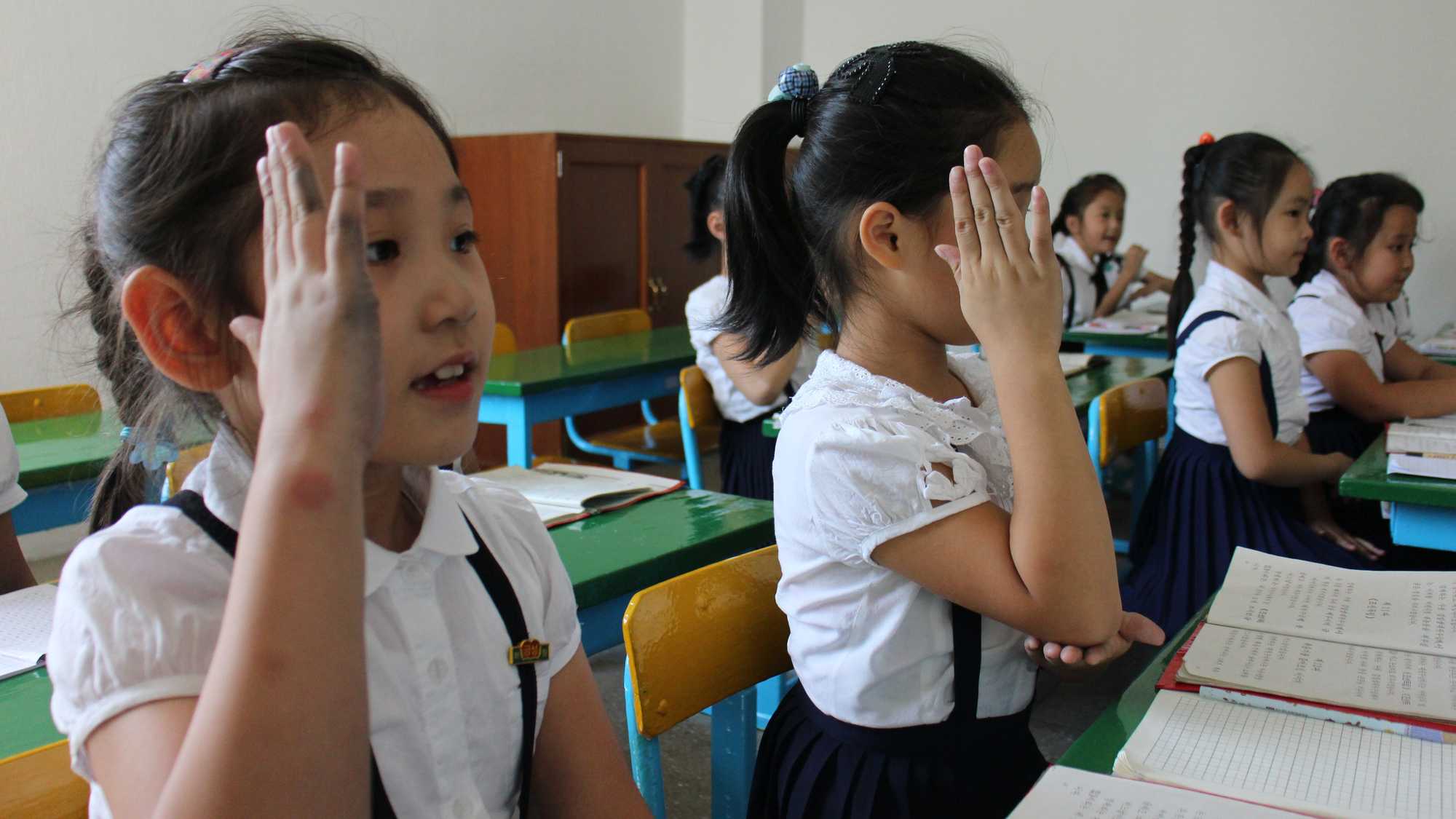
Under The Sun. At the point where I had room for only one more film in my schedule, a friend told me it had to be this one. I owe her a drink. This is at once a beautiful and a terrible document, difficult to watch and impossible to forget. The Russian film-maker, allowed into North Korea to help make a patriotic drama, instead kept his camera rolling between official takes, and made a record of what goes into creating a totalitarian state’s facade. I can’t say I’m easy with the ethics of this, mostly because of the extreme unhappiness visited upon the young girl the authorities forced to be the centre of the film; I can’t imagine having a global audience see this will do her many favours at home. But the film is indelible.
Right: a new day dawns. I am, not to brag, off to four more films. (Yeah, kind of a brag.) I leave you with this chance-heard remark from a fellow audience member: while leaving The Daughter, a woman behind me said, “It was so strange to see Sam Neill play a grandfather! I suppose he’s old enough, when I think about it”. Sam Neill, my dear, is 68. We can agree he wears it well.
Read more: Poi E, Lovesong, Certain Women and more: all the things that don’t get said





